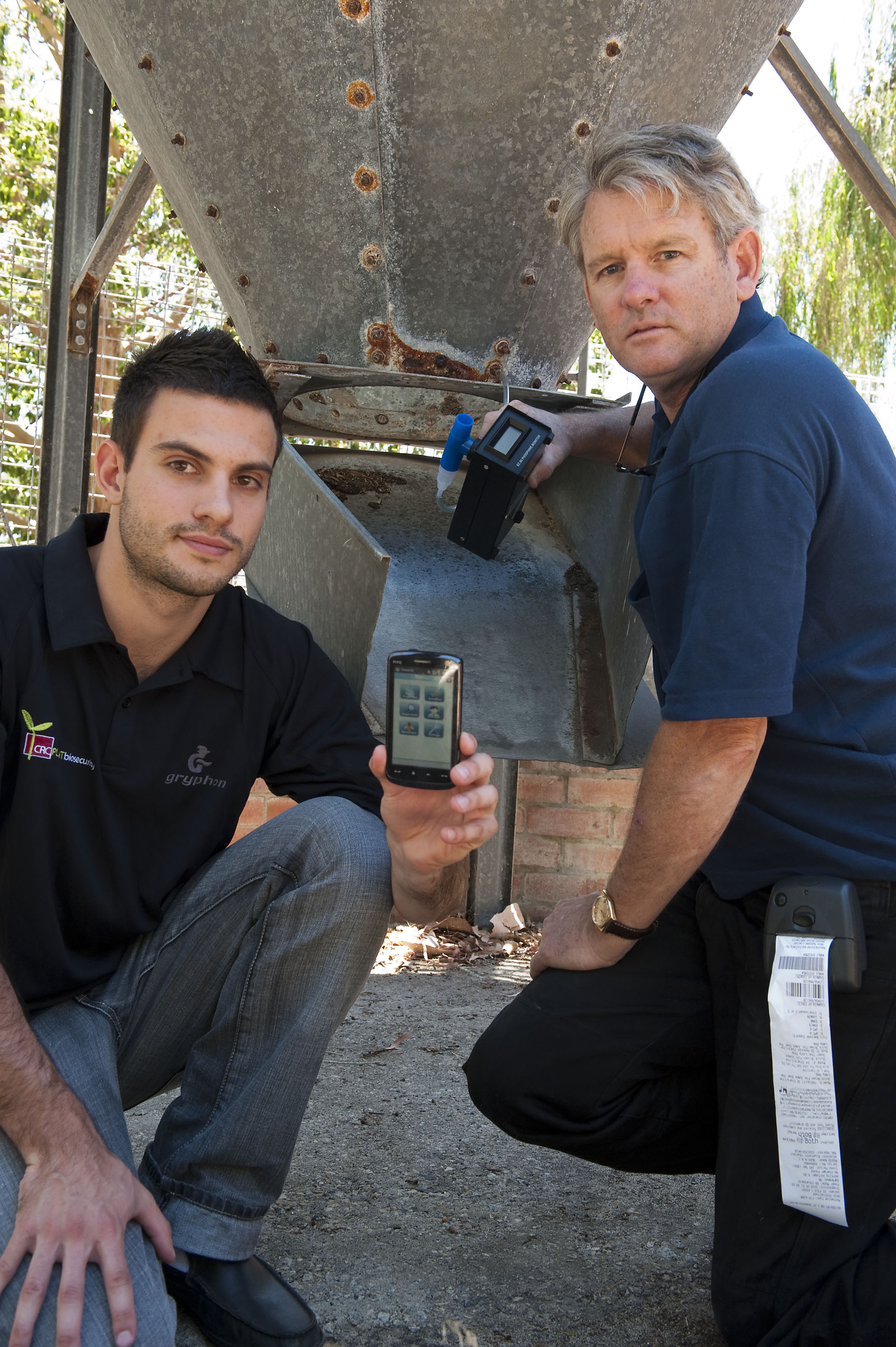Technology targets biosecurity to boost market access
Joint media release (Department of Agriculture and Food, Western Australia): 8 January 2010
 New hand-held computer technology will be trialled this summer with the potential to improve protection of the nation’s vast grains storage system, generate cost savings and enable greater market access.
New hand-held computer technology will be trialled this summer with the potential to improve protection of the nation’s vast grains storage system, generate cost savings and enable greater market access.
Personal Digital Assistants (PDAs) are being used to transform manual paper trails into more accurate and efficient systems that will also support biosecurity processes.
The Department of Agriculture and Food is leading the Cooperative Research Centre for National Plant Biosecurity (CRCNPB) project, in association with the CBH Group, ABB Grain, GrainCorp Operations and other Western Australian agriculture organisations.
Researcher Rob Emery said while the efficiency and accuracy gains alone would be beneficial, the potential for the systems to improve market access would be invaluable.
“In this day and age markets expect credible evidence to validate claims that grains are free from pests and diseases,” he said.
“These new PDA based systems will be able to document expanded surveillance results more accurately and securely to prove freedom from biosecurity risks. This will greatly assist market access for Australian grains.”
Mr Emery said the use of PDAs would also help to improve phosphine treatments of stored grain by allowing more extensive monitoring and on-site evaluation of fumigation effectiveness.
“A map of phosphine levels across grains bulk storage could be created that show potential inconsistencies and leaks, which the grain handler can then act upon before they become a problem - generating considerable cost savings,” he said.
“PDA software allows for a number of surveys to be conducted simultaneously, such as for pest trapping. PDAs could be used to accurately document the GPS location of suspect specimens and send a photograph of the sample via email. A preliminary identification can be performed via the internet before the sample is packaged complete with a bar code printed in the field providing a valuable chain-of-evidence.”
The department has programmed prototype PDAs, which the CBH Group will test in the field to provide feedback and refinement.
“This is a living project and the system is constantly being reviewed, improved and different applications are being considered as they become available,” Mr Emery said.
“This technology is very exciting and could be potentially be used in a range of different industry applications.”
The outputs of this and all CRCNPB projects are shared between its participants, including the Department of Agriculture, Forestry and Fisheries, Department of Agriculture and Food, WA, Queensland Primary Industries and Fisheries, Murdoch University, CBH Group, ABB Grain Ltd and GrainCorp Operations Limited.
Photo caption: Department of Agriculture and Food researchers Nicolas Garel and Rob Emery with Personal Digital Assistants (PDAs) being trialled this summer which have the potential to improve protection of the nation’s vast grains storage system, generate cost savings and enable greater market access.
Media contacts:
Rob Emery, Research Officer – Phone: (08) 9368 3247
Jodie Thomson – Phone: (08) 9368 3937
Lisa Bertram – Phone: (08) 9368 3325
Instructions for downloading images
To download and save images, right-click on the link and click ‘save target as’. If you experience any problems, please contact Communications Manager, Kate Scott on 0402 299 611 or k.scott@crcplantbiosecurity.com.au

